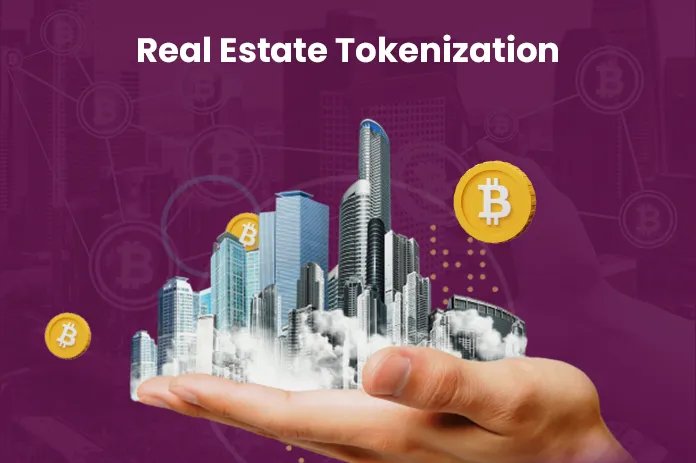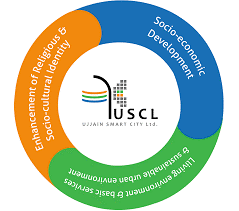In an era where digital innovation is reshaping industries at a rapid pace, real estate tokenization is emerging as one of the most transformative concepts in property investment. By leveraging blockchain technology, this model enables individuals to own fractional shares of real estate through digital tokens, offering unprecedented liquidity, accessibility, and efficiency. Whether you’re a tech-savvy investor or a traditional player seeking diversification, understanding Real Estate Tokenization, its potential, challenges, and long-term implications is crucial.
Let’s explore this evolving concept in a detailed, systematic, and comprehensive manner.
Also Read Real Estate News.
What Is Real Estate Tokenization? A Simple Explanation for Beginners
Real Estate Tokenization refers to the process of converting the value of a physical property into a digital token on a blockchain. Each token represents a fractional ownership in the property, allowing multiple investors to own parts of it without having to purchase the entire asset.
This digital shift introduces greater accessibility and liquidity to an otherwise capital-intensive and illiquid market. Unlike traditional investing, where large capital is required, tokenization breaks the barrier and democratizes real estate ownership.
How Does Real Estate Tokenization Work Step by Step?
Understanding the step-by-step process of real estate tokenization helps simplify the complexity of blockchain-backed assets:
- Property Identification and Legal Structuring
A property (residential, commercial, or land) is selected and structured legally through a Special Purpose Vehicle (SPV) or a Real Estate Investment Trust (REIT).
- Valuation and Due Diligence
Independent valuation firms assess the property to determine its worth. Legal due diligence is conducted to ensure a clean title and clear compliance.
- Token Creation on Blockchain
Using a Real Estate Tokenization platform, digital tokens are minted representing shares in the property. These tokens are stored on a Real Estate Tokenization blockchain.
- Smart Contract Development
Smart contracts define rules of ownership, rental income distribution, rights, transferability, and dispute resolution, ensuring transparency.
- Investor Onboarding and KYC
Investors complete KYC and AML checks through the platform. Once verified, they can purchase tokens using fiat or cryptocurrency.
- Trading and Liquidity
These tokens can then be traded on secondary markets or the platform itself, providing liquidity that traditional real estate lacks.
Also Read:- MahaRERA 2025: RERA Maharashtra Registration, Complaint, Projects & Agents
Benefits of Real Estate Tokenization for Small Investors

For retail investors and those with limited capital, tokenization opens up entirely new avenues of wealth building. Key benefits include:
- Fractional Ownership: Buy as little as 0.01% of a property.
- Diversification: Invest across geographies and property types.
- Passive Income: Earn rental yields proportionate to your holdings.
- Liquidity: Tokens can be traded or sold in secondary markets.
- Transparency: Blockchain ensures traceable and tamper-proof records.
- Low Entry Barriers: Start investing with just a few thousand rupees or dollars.
Also Read:- Karnataka Housing Board:- Upcoming Projects | Schemes | Registration 2025-26
Risks and Challenges of Investing in Tokenized Real Estate

Despite its promise, investors must weigh certain risks:
- Regulatory Uncertainty: Especially in emerging markets like India.
- Platform Security: Hack vulnerabilities or smart contract bugs.
- Market Volatility: Prices may fluctuate with demand.
- Limited Legal Framework: Ambiguity around investor protection.
- Liquidity Illusions: Not all tokenized assets have active secondary markets.
Also Read:- How to Check and Pay Property Tax in Hyderabad in 2025
Real Estate Tokenization vs Traditional Real Estate Investment
| Feature |
Tokenized Real Estate |
Traditional Real Estate |
| Ownership Model |
Fractional via tokens |
Full or co-ownership |
| Minimum Investment |
Low (₹500–₹10,000) |
High (₹10 lakh+) |
| Liquidity |
High (with active markets) |
Low |
| Accessibility |
Global |
Local |
| Documentation |
Digital & automated |
Paper-heavy |
| Transaction Speed |
Minutes to hours |
Weeks to months |
Best Platforms for Real Estate Tokenization in 2025
As of 2025, leading Real Estate Tokenization companies and platforms offering tokenized investment opportunities include:
- RealT – Offers fractional ownership in U.S. properties.
- PropShare – Indian platform allowing access to high-yield commercial assets.
- BrikToken – Specializes in tokenized rental income.
- PropertyShare – Combines real estate and tech for curated investments.
Also Read:- Municipal Tax on Commercial Property: Pay Online | Rules
How to Buy Tokenized Real Estate Properties Online Safely?
To ensure a safe and legitimate investment, follow these steps:
- Choose a reputable Real Estate Tokenization platform with a strong track record.
- Check for platform licenses and compliance with Real Estate Tokenization India norms.
- Complete your KYC.
- Analyze the token prospectus: details about the asset, valuation, and expected returns.
- Diversify your holdings.
- Enable 2FA and ensure wallet safety.
- Regularly monitor the performance of your tokens.
Legal and Regulatory Issues in Real Estate Tokenization

In India, regulatory clarity is still developing. The following legal considerations apply:
- SEBI is yet to fully formalize guidelines for tokenized securities.
- RBI has limited cryptocurrency use, which affects token trading.
- Stamp Duty & GST may still apply depending on the structure.
- Title Ownership still needs physical verification in most regions.
Until formal laws evolve, most Real Estate Tokenization development is happening through sandbox models or outside regulatory frameworks.
Also Read:- Dharavi Redevelopment Project: Master Plan Approved for asia’s Largest Slum
Blockchain Technology in Real Estate Tokenization Explained
Blockchain acts as the backbone for tokenization:
- Immutable Ledger: Every transaction is recorded permanently.
- Smart Contracts: Automate income distribution and legal compliance.
- Security: Uses cryptographic methods to prevent fraud.
- Interoperability: Can integrate with government land registries in the future.
Real Estate Tokenization for Fractional Ownership Opportunities
One of the standout aspects of tokenization is fractional ownership. This allows:
- Students or first-time investors to begin small.
- NRIs to invest in India without full property purchase.
- Diversification across commercial, residential, and rental projects.
Also Read:- DDA Housing Scheme 2025: Key Details | Registration Online | Price
Tax Implications of Real Estate Tokenization for Investors

While laws are evolving, general tax implications may include:
- Rental Income: Taxed as per the investor’s income slab.
- Capital Gains: If tokens are sold at a profit, long-term/short-term capital gains may apply.
- GST or TDS: Might be levied based on the property type or platform structure.
Always consult a financial advisor or tax expert before investing.
Also Read:- Understanding the Removal of Indexation on Property Sales- LTCG (Long Term Capital Gain Tax)
Real Estate Tokenization Success Stories and Case Studies
Let’s explore some Real Estate Tokenization case study examples:
- Dubai Commercial Tower Tokenization: Raised $18 million from 6,000 investors worldwide, enabling fractional ownership for all.
- RealT Detroit Properties: Offered rental homes in the US starting at just $50/token.
- Indian Case: In Bangalore, tokenization of co-working spaces allowed retail investors to earn a fixed monthly rental yield.
These Real Estate Tokenization projects have proved the model’s potential.
Future Trends in Real Estate Tokenization and Blockchain Property Investment
The road ahead looks promising:
- Government Registries On-Chain: Land records may move to blockchain for fraud-proof verification.
- Global Token Exchanges: Real estate token trading across borders.
- AI + Blockchain Integration: Smart decision-making for investment portfolios.
- Increased Regulation: Clear laws will boost investor confidence.
- Rise in Residential Tokenization: Not just commercial or luxury properties.
Also Read:- Real Estate Growth in India Over the Last 10 Years and Future Prospects
Conclusion
Real estate tokenization is no longer a futuristic concept—it’s here, growing, and revolutionizing how we think about property investment. With blockchain at its core, this model democratizes access, enhances liquidity, and opens doors for even the smallest investor to participate in what was once an elite asset class.
While challenges such as legal ambiguity and platform security remain, the benefits far outweigh the risks, especially as more Real Estate Tokenization India projects gain regulatory clarity.
At Housiey, we’re always keeping up with emerging real estate trends to help you make informed decisions. If this blog intrigued you, you’ll love our deep dive on why investing in plots is a smart move—do check it out!
FAQs
In an era where digital innovation is reshaping industries at a rapid pace, real estate tokenization is emerging as one of the most transformative concepts in property investment. By leveraging blockchain technology, this model enables individuals to own fractional shares of real estate through digital tokens, offering unprecedented liquidity, accessibility, and efficiency. Whether you’re a tech-savvy investor or a traditional player seeking diversification, understanding Real Estate Tokenization, its potential, challenges, and long-term implications is crucial.
Let’s explore this evolving concept in a detailed, systematic, and comprehensive manner.
Also Read Real Estate News.
What Is Real Estate Tokenization? A Simple Explanation for Beginners
Real Estate Tokenization refers to the process of converting the value of a physical property into a digital token on a blockchain. Each token represents a fractional ownership in the property, allowing multiple investors to own parts of it without having to purchase the entire asset.
This digital shift introduces greater accessibility and liquidity to an otherwise capital-intensive and illiquid market. Unlike traditional investing, where large capital is required, tokenization breaks the barrier and democratizes real estate ownership.
How Does Real Estate Tokenization Work Step by Step?
Understanding the step-by-step process of real estate tokenization helps simplify the complexity of blockchain-backed assets:
- Property Identification and Legal Structuring
A property (residential, commercial, or land) is selected and structured legally through a Special Purpose Vehicle (SPV) or a Real Estate Investment Trust (REIT).
- Valuation and Due Diligence
Independent valuation firms assess the property to determine its worth. Legal due diligence is conducted to ensure a clean title and clear compliance.
- Token Creation on Blockchain
Using a Real Estate Tokenization platform, digital tokens are minted representing shares in the property. These tokens are stored on a Real Estate Tokenization blockchain.
- Smart Contract Development
Smart contracts define rules of ownership, rental income distribution, rights, transferability, and dispute resolution, ensuring transparency.
- Investor Onboarding and KYC
Investors complete KYC and AML checks through the platform. Once verified, they can purchase tokens using fiat or cryptocurrency.
- Trading and Liquidity
These tokens can then be traded on secondary markets or the platform itself, providing liquidity that traditional real estate lacks.
Also Read:- MahaRERA 2025: RERA Maharashtra Registration, Complaint, Projects & Agents
Benefits of Real Estate Tokenization for Small Investors

For retail investors and those with limited capital, tokenization opens up entirely new avenues of wealth building. Key benefits include:
- Fractional Ownership: Buy as little as 0.01% of a property.
- Diversification: Invest across geographies and property types.
- Passive Income: Earn rental yields proportionate to your holdings.
- Liquidity: Tokens can be traded or sold in secondary markets.
- Transparency: Blockchain ensures traceable and tamper-proof records.
- Low Entry Barriers: Start investing with just a few thousand rupees or dollars.
Also Read:- Karnataka Housing Board:- Upcoming Projects | Schemes | Registration 2025-26
Risks and Challenges of Investing in Tokenized Real Estate

Despite its promise, investors must weigh certain risks:
- Regulatory Uncertainty: Especially in emerging markets like India.
- Platform Security: Hack vulnerabilities or smart contract bugs.
- Market Volatility: Prices may fluctuate with demand.
- Limited Legal Framework: Ambiguity around investor protection.
- Liquidity Illusions: Not all tokenized assets have active secondary markets.
Also Read:- How to Check and Pay Property Tax in Hyderabad in 2025
Real Estate Tokenization vs Traditional Real Estate Investment
| Feature |
Tokenized Real Estate |
Traditional Real Estate |
| Ownership Model |
Fractional via tokens |
Full or co-ownership |
| Minimum Investment |
Low (₹500–₹10,000) |
High (₹10 lakh+) |
| Liquidity |
High (with active markets) |
Low |
| Accessibility |
Global |
Local |
| Documentation |
Digital & automated |
Paper-heavy |
| Transaction Speed |
Minutes to hours |
Weeks to months |
Best Platforms for Real Estate Tokenization in 2025
As of 2025, leading Real Estate Tokenization companies and platforms offering tokenized investment opportunities include:
- RealT – Offers fractional ownership in U.S. properties.
- PropShare – Indian platform allowing access to high-yield commercial assets.
- BrikToken – Specializes in tokenized rental income.
- PropertyShare – Combines real estate and tech for curated investments.
Also Read:- Municipal Tax on Commercial Property: Pay Online | Rules
How to Buy Tokenized Real Estate Properties Online Safely?
To ensure a safe and legitimate investment, follow these steps:
- Choose a reputable Real Estate Tokenization platform with a strong track record.
- Check for platform licenses and compliance with Real Estate Tokenization India norms.
- Complete your KYC.
- Analyze the token prospectus: details about the asset, valuation, and expected returns.
- Diversify your holdings.
- Enable 2FA and ensure wallet safety.
- Regularly monitor the performance of your tokens.
Legal and Regulatory Issues in Real Estate Tokenization

In India, regulatory clarity is still developing. The following legal considerations apply:
- SEBI is yet to fully formalize guidelines for tokenized securities.
- RBI has limited cryptocurrency use, which affects token trading.
- Stamp Duty & GST may still apply depending on the structure.
- Title Ownership still needs physical verification in most regions.
Until formal laws evolve, most Real Estate Tokenization development is happening through sandbox models or outside regulatory frameworks.
Also Read:- Dharavi Redevelopment Project: Master Plan Approved for asia’s Largest Slum
Blockchain Technology in Real Estate Tokenization Explained
Blockchain acts as the backbone for tokenization:
- Immutable Ledger: Every transaction is recorded permanently.
- Smart Contracts: Automate income distribution and legal compliance.
- Security: Uses cryptographic methods to prevent fraud.
- Interoperability: Can integrate with government land registries in the future.
Real Estate Tokenization for Fractional Ownership Opportunities
One of the standout aspects of tokenization is fractional ownership. This allows:
- Students or first-time investors to begin small.
- NRIs to invest in India without full property purchase.
- Diversification across commercial, residential, and rental projects.
Also Read:- DDA Housing Scheme 2025: Key Details | Registration Online | Price
Tax Implications of Real Estate Tokenization for Investors

While laws are evolving, general tax implications may include:
- Rental Income: Taxed as per the investor’s income slab.
- Capital Gains: If tokens are sold at a profit, long-term/short-term capital gains may apply.
- GST or TDS: Might be levied based on the property type or platform structure.
Always consult a financial advisor or tax expert before investing.
Also Read:- Understanding the Removal of Indexation on Property Sales- LTCG (Long Term Capital Gain Tax)
Real Estate Tokenization Success Stories and Case Studies
Let’s explore some Real Estate Tokenization case study examples:
- Dubai Commercial Tower Tokenization: Raised $18 million from 6,000 investors worldwide, enabling fractional ownership for all.
- RealT Detroit Properties: Offered rental homes in the US starting at just $50/token.
- Indian Case: In Bangalore, tokenization of co-working spaces allowed retail investors to earn a fixed monthly rental yield.
These Real Estate Tokenization projects have proved the model’s potential.
Future Trends in Real Estate Tokenization and Blockchain Property Investment
The road ahead looks promising:
- Government Registries On-Chain: Land records may move to blockchain for fraud-proof verification.
- Global Token Exchanges: Real estate token trading across borders.
- AI + Blockchain Integration: Smart decision-making for investment portfolios.
- Increased Regulation: Clear laws will boost investor confidence.
- Rise in Residential Tokenization: Not just commercial or luxury properties.
Also Read:- Real Estate Growth in India Over the Last 10 Years and Future Prospects
Conclusion
Real estate tokenization is no longer a futuristic concept—it’s here, growing, and revolutionizing how we think about property investment. With blockchain at its core, this model democratizes access, enhances liquidity, and opens doors for even the smallest investor to participate in what was once an elite asset class.
While challenges such as legal ambiguity and platform security remain, the benefits far outweigh the risks, especially as more Real Estate Tokenization India projects gain regulatory clarity.
At Housiey, we’re always keeping up with emerging real estate trends to help you make informed decisions. If this blog intrigued you, you’ll love our deep dive on why investing in plots is a smart move—do check it out!
FAQs










